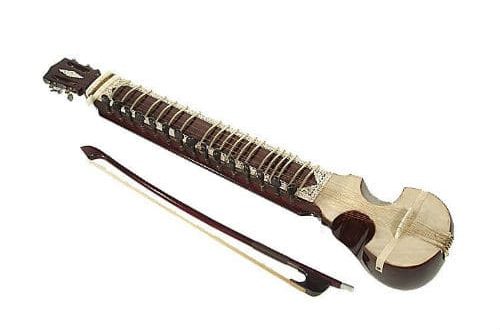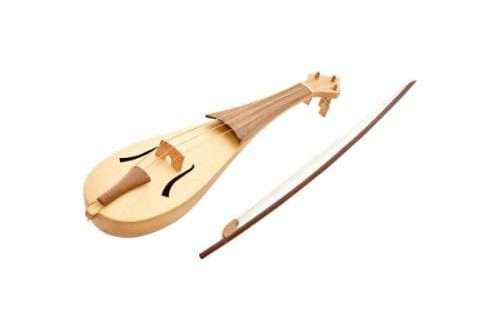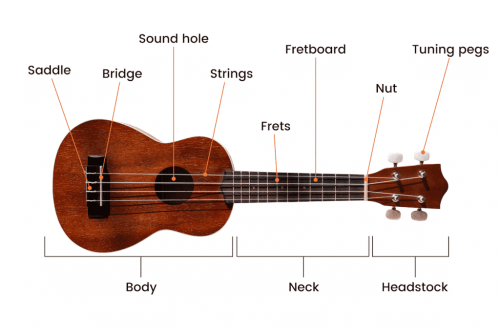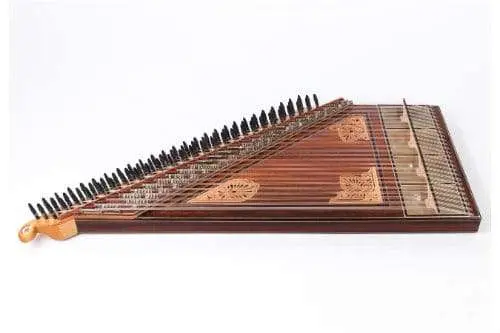
Kanun: description of the instrument, composition, history, use, playing technique
Contents
The musical culture of every nation has its own traditions. In the countries of the Middle East, a stringed plucked musical instrument kanun has been played for many centuries. At the beginning of the last century, it was almost lost, but in the 60s it sounded again at concerts, festivals, holidays.
How the eve works
All the most ingenious is arranged simply. Outwardly, the kanun resembles a shallow wooden box, on the upper part of which strings are stretched. The shape is trapezoidal, most of the structure is covered with fish skin. Body length – 80 centimeters. The Turkish and Armenian instruments are slightly longer and differ from the Azerbaijani ones in the tuning of the scale.

For the manufacture of eve, pine, spruce, walnut are used. Three holes are drilled into the body. The tension of the strings is regulated by the pegs, under which the leagues are located. With their help, the performer can quickly change the pitch to a tone or a semitone. Triple strings are stretched in 24 rows. The Armenian and Persian canon can have up to 26 rows of strings.
They play it on their knees. The sound is extracted by plucking the strings with the fingers of both hands, on which a plectrum is put on – a metal thimble. Each nation has its own canon. The bass kanun was introduced into a separate variety, the Azerbaijani instrument sounds higher than the others.
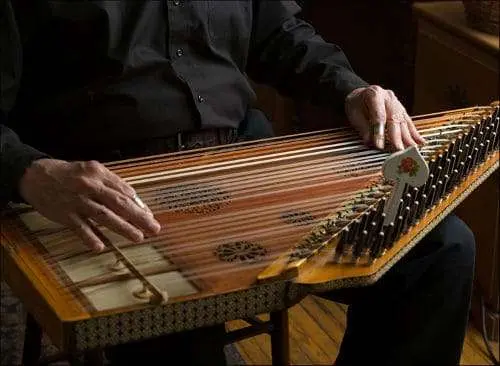
History
The Armenian canon is the oldest. It has been played since the Middle Ages. Gradually, varieties of the instrument spread throughout the Middle East, tightly entered the culture of the Arab world. The arrangement of the eve resembled a European zither. The case was decorated with beautiful national ornaments, inscriptions in Arabic, pictures telling about the life of the author.
Girls and women played the instrument. Since 1969, they began to teach how to play the Ganon at the Baku Music College, and a decade later, a class of canonists was opened at the Music Academy in the capital of Azerbaijan.
Today in the East, not a single event can do without the sounding of the canon, it is heard on national holidays. They say here: “Just as a European musician considers it necessary to be able to play the piano, so in the East, music performers are required to master the skill of playing the ganon.”



